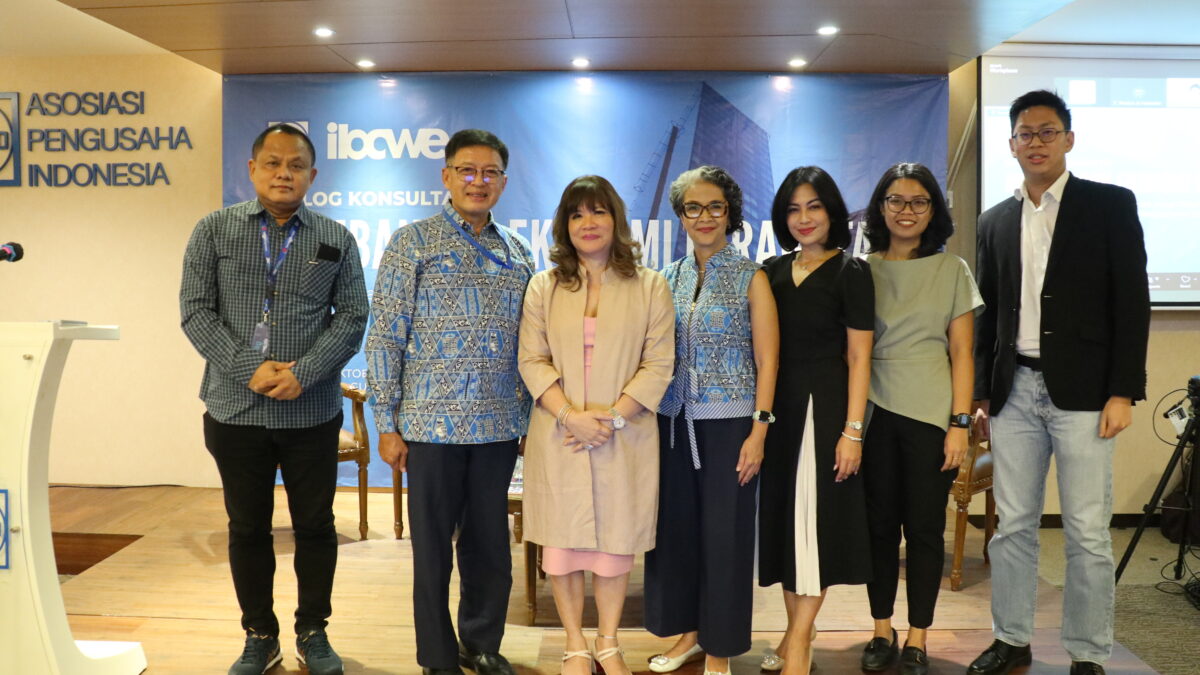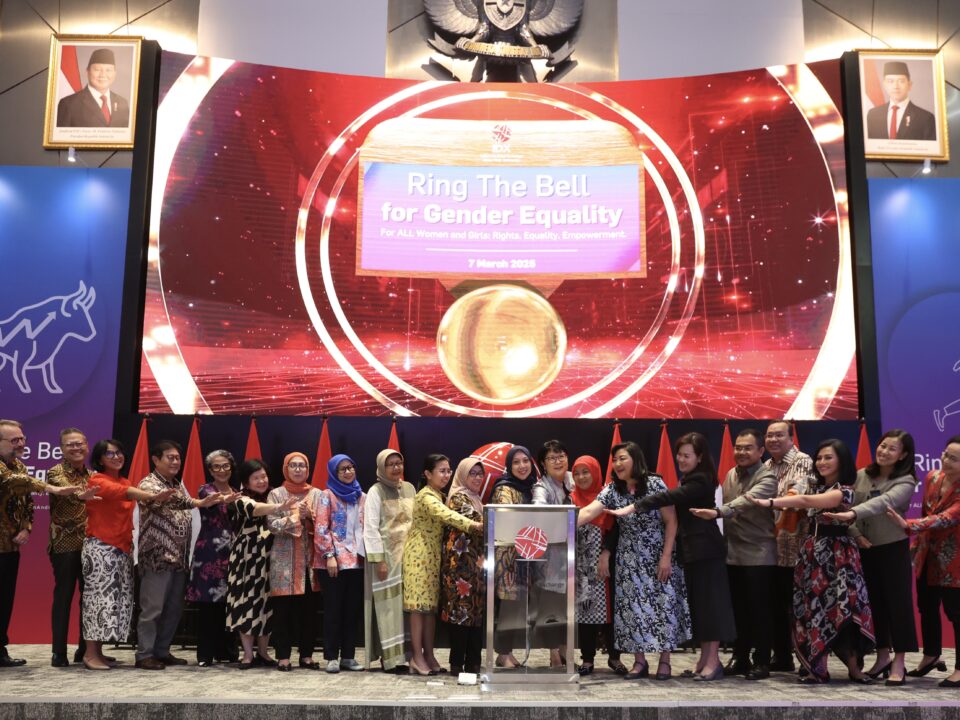
How Businesses Can Empower Women and Boost Productivity
October 29, 2024
Redefining Support: How Employers Can Empower Working Fathers
November 29, 2024Jakarta, October 29, 2024 – Women’s labor force participation in Indonesia remains significantly lower than men’s, with a gap of around 30 percentage points persisting over the past two decades. Married women, particularly those aged 20-40 with children, often struggle to balance work and family responsibilities.
The dual role of parenthood can create conflicts between work obligations and childcare needs. Research indicates that women in their prime working years spend a substantial amount of time on unpaid care work and domestic chores, limiting their opportunities for effective employment. This has long-term implications for their career progression and is a primary reason for the underrepresentation of women in corporate leadership positions.
To address the persistent gender gap in Indonesia’s labor force, APINDO and IBCWE have organized a consultative dialogue on the International Day of Care. The event, themed “Building a Care Economy: Investing in Employer-Supported Childcare for Business Growth and SDG Achievement” aims to boost women’s labor force participation.
APINDO Chairperson Shinta W. Kamdani expressed hope that this initiative would accelerate progress on this issue. According to the Central Statistics Agency (BPS), women’s labor force participation has only increased by 1% from 2023 to reach 55.41%, significantly lagging behind men’s rate of 84.02%.
Therefore, it is crucial for the business to seek innovative solutions to create a work environment that not only encourages full participation of women but also promotes sustainable business growth through employer-supported childcare (ESC).
“We believe that ESC is a strategic step that can help companies attract and retain talent, as well as provide a more inclusive and balanced work environment. This initiative is also aligned with APINDO’s mission to increase labor productivity and support the achievement of the Sustainable Development Goals, particularly in gender equality and decent work,” explained Shinta.
In the same occasion, APINDO’s Community Development Committee Chair for SDGs, Stefanus Indrayana, stated that women’s labor force participation is a key factor in inclusive and sustainable economic growth. Therefore, providing childcare facilities for working parents is one of the important solutions to address this challenge.
Indrayana explained that ESC not only increases productivity and employee well-being, but also directly contributes to achieving the Sustainable Development Goals (SDGs), specifically SDG 5: Gender Equality and SDG 8: Decent Work and Economic Growth.
Meanwhile, acting as the moderator of the panel discussion, Executive Director of the Indonesia Business Coalition for Women Empowerment (IBCWE), Wita Krisanti, urged businesses to play a more active role in shaping the future of work. “Support for caregiving tasks also has a positive impact on the long-term sustainability of a business. Companies that provide assistance programs for childcare have experienced increased productivity and loyalty from their employees,” said Wita during a panel discussion with companies that have successfully implemented childcare programs.
About APINDO
The Indonesian Employers’ Association (APINDO) represents Indonesia’s business community. Established on January 31, 1952, APINDO is led by a National Board in Jakarta and has branches in 34 provinces and 305 cities/regencies.
Initially focused on industrial relations and labor issues, APINDO’s role has expanded to encompass a broader range of sectors and to promote national interests through human resource development and partnerships. APINDO’s business units, the International Strategic Partnership Center (ISPC) and APINDO Training Center (ATC), facilitate these efforts. APINDO is also actively engaged in international advocacy through its memberships in the International Organization of Employers (IOE), ASEAN Confederation of Employers (ACE), and Confederation of Asia-Pacific Employers (CAPE).
APINDO is represented in tripartite institutions involving the government, employers, and workers. Several APINDO board members serve on the National Tripartite Cooperation Body, the National Wage Council, and the Occupational Safety and Health Council. APINDO’s 2023-2028 strategic plan includes four key programs: an economic roadmap to enhance APINDO’s advocacy and competitiveness, the UMKM Merdeka Inclusive Economy program, the Inclusive Collaboration of Entrepreneurs to Address Stunting (KIPAS) initiative involving 1,000 entrepreneurs, and APINDO’s HR-IR certification program to develop competent human resource management and industrial relations professionals.
Visit www.apindo.or.id for more information.
About IBCWE
Indonesia Business Coalition for Women Empowerment (IBCWE) is a coalition of companies committed to promoting women’s economic empowerment and gender equality. Our mission is to support businesses in optimizing their role in advancing women’s economic empowerment and gender equality. IBCWE was formed with the support of the Australian Government through the Investing in Women program.





